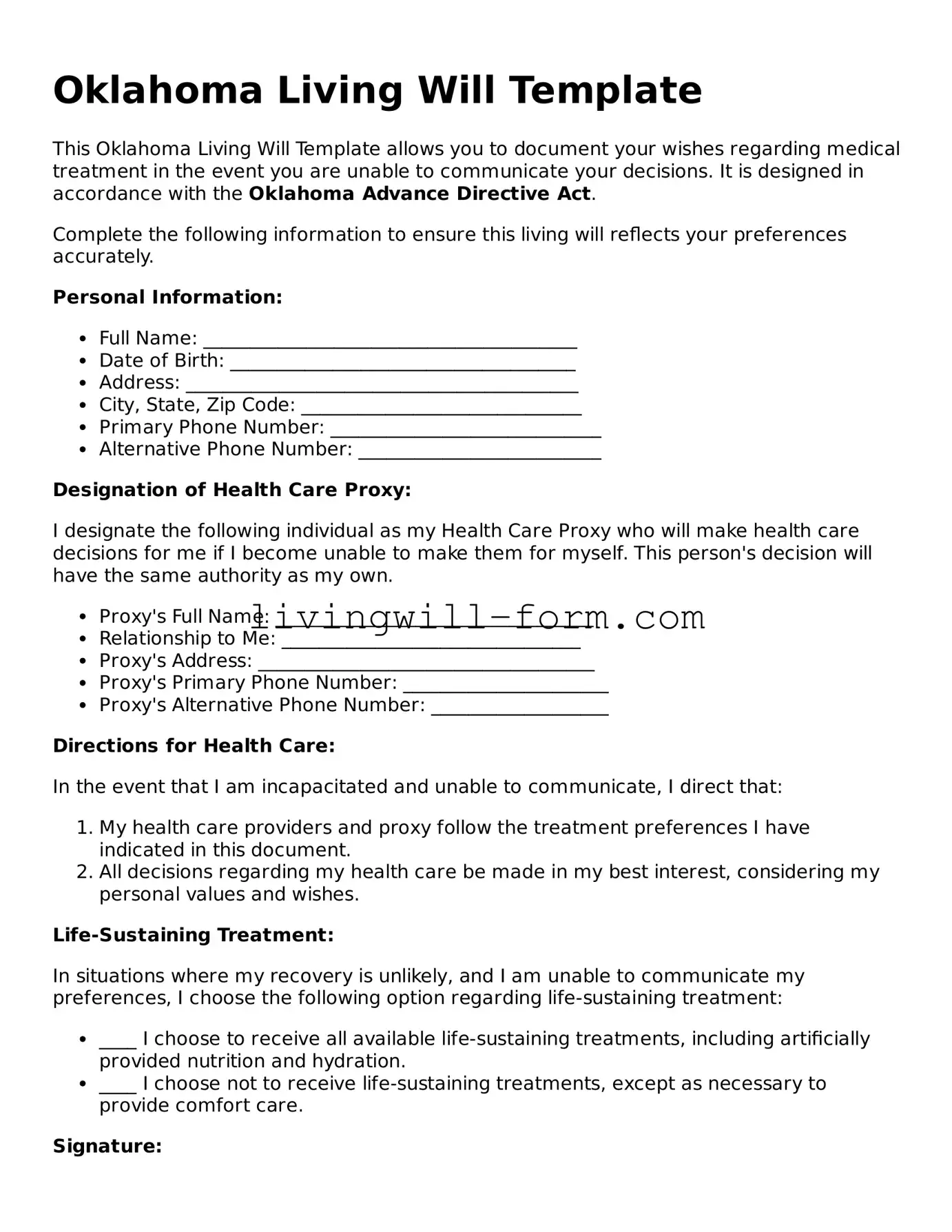What is an Oklahoma Living Will?
An Oklahoma Living Will is a legal document that allows an individual to express their wishes regarding medical treatment in the event they are unable to communicate their decisions due to illness or incapacity. It focuses on end-of-life care and the extent of medical intervention the individual desires.
Who should have an Oklahoma Living Will?
Any adult resident of Oklahoma who wishes to have control over their medical treatment should consider creating a Living Will. It is especially important for those with serious health conditions, but it is advisable for anyone who wants to ensure their healthcare preferences are respected.
How does an Oklahoma Living Will differ from a Medical Power of Attorney?
An Oklahoma Living Will outlines specific wishes regarding life-sustaining treatment, while a Medical Power of Attorney designates someone else (an agent) to make healthcare decisions on the person’s behalf. The two documents can complement each other, offering a comprehensive approach to future healthcare planning.
What should be included in an Oklahoma Living Will?
An Oklahoma Living Will typically includes details about the individual’s wishes regarding artificial life support, resuscitation, and other life-sustaining treatments. It may also specify desires for pain management and organ donation.
Do I need a lawyer to create an Oklahoma Living Will?
While it is not legally required to have a lawyer to create a Living Will in Oklahoma, consulting with a legal professional can ensure the document accurately reflects your wishes and meets all state legal requirements.
How can I create an Oklahoma Living Will?
A Living Will can be created by filling out a state-specific form that complies with Oklahoma law. This form should then be signed in the presence of witnesses or a notary public, as required by state guidelines.
Can an Oklahoma Living Will be changed or revoked?
Yes, an individual can change or revoke their Oklahoma Living Will at any time. To do so, they must communicate their intention clearly, ideally in writing, and in accordance with state laws. Destroying the document or creating a new Living Will can also revoke the previous document.
How do medical providers in Oklahoma know if I have a Living Will?
It's important to inform your healthcare providers that you have a Living Will and provide them with a copy. Keeping a copy in an easily accessible place and informing close family members or your medical power of attorney agent of its location can also ensure it is used when necessary.
Is an Oklahoma Living Will valid in other states?
While many states may honor an Oklahoma Living Will, the legal requirements for Living Wills vary from state to state. If you spend a significant amount of time in another state, it may be wise to create a separate Living Will that complies with that state’s laws.
What happens if I don't have a Living Will in Oklahoma?
If you become unable to make healthcare decisions and don't have a Living Will, Oklahoma laws will determine who can make those decisions on your behalf, typically focusing on your closest relatives. Without a Living Will, your specific wishes for healthcare treatment may not be known or followed.

